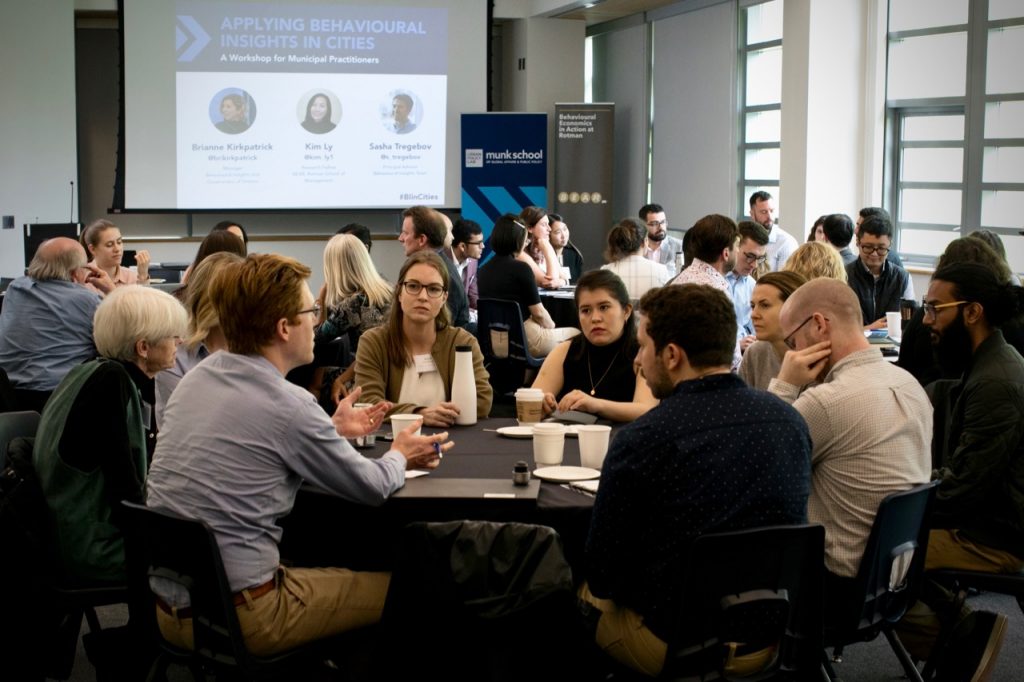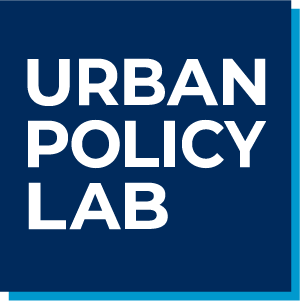
The field of behavioural science — the science of understanding, analyzing and motivating human behaviour — holds enormous potential to improve public policy and the delivery of public services. In recent years, behavioural insights derived from scientific knowledge and methods in the fields of psychology, cognitive/neuroscience, and economics have been applied by governments around the world. Most of these applications, however, have been limited to national and provincial contexts.
On June 5, the Urban Policy Lab co-hosted a half-day workshop for municipal practitioners from across the Greater Toronto and Hamilton region, in partnership with Behavioural Economics in Action at Rotman (BEAR) and the University of Toronto’s School of Cities.
The goal was to demonstrate potential applications of behavioural insights in local and regional government, and build a network of interested partners to explore future collaborations and innovations in municipal service design and delivery.
The workshop included presentations from the following panellists, as well as breakout groups where attendees could ask specific questions about how behavioural insights might be applied to their policy work
- Brianne Kirkpatrick, Manager, Behavioural Insights Unit, Government of Ontario
- Kim Ly, Research Fellow, Behavioural Economics in Action at Rotman School of Management
- Sasha Tregebov, Principal Advisor, Behavioural Insights Team
Participants included representatives from the City of Toronto, Mississauga, Hamilton, Guelph, Brampton, Richmond Hill, and the Regions of Peel, York, and Durham.
Fantastic turnout today for our morning workshop on Applying Behavioural Insights in Cities. Packed room of policy practitioners from municipalities across the Greater Toronto and Hamilton region! https://t.co/JLROIilDfg
— Urban Policy Lab (@UrbanPolicyLab) June 5, 2019
Fascinating morning representing @CityPlanTO at “Applying Behavioural Insights in Cities workshop”. Behavioural science can help cities achieve policy objectives by “nudging” individuals towards certain behaviour. Thanks @UrbanPolicyLab, @brikirkpatrick and @s_tregebov pic.twitter.com/e6oYCiJ8X7
— Adrian Phillips (@adrian_phi) June 5, 2019
This was such a great event – hats off to all the organizers @GabrielEidelman @UrbanPolicyLab @UofT_BEAR @UofTCities and facilitators @s_tregebov @kim_ly1 @julian_house. 🙌🙌🙌 to the fantastic participants.
— Brianne Kirkpatrick (@brikirkpatrick) June 5, 2019

